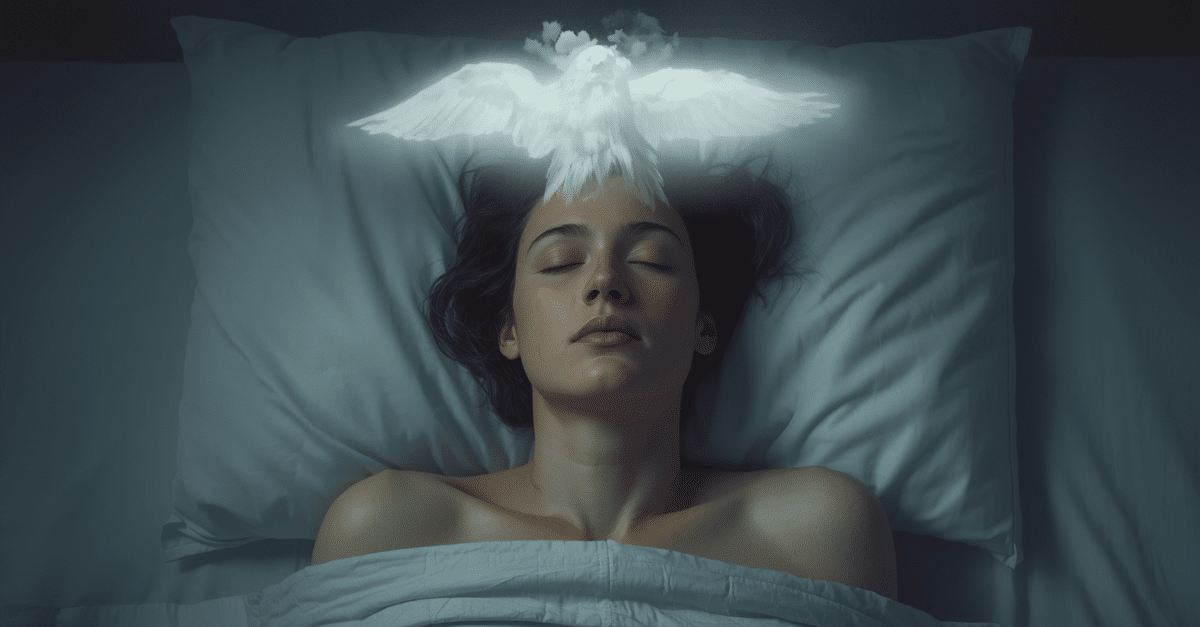🌙 What Is Sleep Paralysis?
Have you ever woken up in the middle of the night and realized you couldn’t move or speak — even though you were awake? You might feel a heavy pressure on your chest or a strange presence nearby.
That frightening state is called sleep paralysis.
Sleep paralysis is a temporary condition where you’re awake but unable to move or talk. It occurs when your mind wakes up before your body, leaving you stuck between sleep and wakefulness.
Research suggests that up to 8% of people worldwide experience this at least once in their lifetime.
⚠️ What Causes Sleep Paralysis?
Sleep paralysis usually happens during the REM (Rapid Eye Movement) stage — the dream phase of sleep. During REM, your body naturally becomes still (a process called REM atonia) to stop you from acting out dreams.
But sometimes, your brain wakes up while your body is still in REM mode — that’s when paralysis occurs.
Common Causes:
- Irregular sleep schedule: Changing bedtimes or sleeping too little disrupts your REM cycle.
- Sleep deprivation: Lack of rest confuses the brain-body connection.
- Stress and anxiety: Emotional tension affects your sleep quality.
- Sleeping on your back: More episodes are reported in the supine position.
- Narcolepsy or other sleep disorders: Increase REM abnormalities.
🔍 Symptoms of Sleep Paralysis
Knowing the signs helps reduce panic when it happens:
- Being awake but unable to move or speak
- Feeling pressure on the chest or throat
- Sensation of someone’s presence in the room
- Visual or auditory hallucinations
- Shortness of breath or racing heartbeat
- Fear, panic, or dread
Episodes usually last a few seconds to two minutes, though they feel much longer.
🧠 What Happens in the Brain During Sleep Paralysis?
During normal REM sleep, your muscles are paralyzed to prevent movement.
When sleep paralysis occurs, your brain wakes up before your muscles regain control — causing you to feel trapped inside your body.
At the same time, dream-related brain activity may continue, leading to hallucinations or vivid images that feel real.
💬 Is Sleep Paralysis Dangerous?
Despite its terrifying sensation, sleep paralysis is not dangerous.
It doesn’t harm your body or mind. However, frequent episodes may signal conditions like insomnia, narcolepsy, or anxiety that should be medically evaluated.
🌿 Ways to Overcome Sleep Paralysis Naturally
The best treatment is improving your sleep quality and mental well-being. Here’s how:
🕓 1. Maintain a Regular Sleep Schedule
Stick to fixed sleep and wake times daily. This stabilizes your internal body clock and reduces REM disturbances.
🧘 2. Manage Stress and Anxiety
Relax your mind before bed. Try:
- Deep breathing
- Meditation or yoga
- Journaling your thoughts
👉 Read more: Stress Management Techniques for Better Sleep
🛁 3. Practice Good Sleep Hygiene
- Keep your room dark, quiet, and cool
- Avoid caffeine or heavy meals before bed
- Limit screen time at night
💤 4. Change Your Sleeping Position
Avoid sleeping on your back; instead, sleep on your side to reduce episodes.
☕ 5. Avoid Alcohol and Nicotine
These interfere with REM sleep and worsen sleep paralysis frequency.
🌸 6. Use Natural Sleep Aids
- Lavender oil or chamomile tea for relaxation
- Magnesium supplements for muscle and nerve calmness
🧩 7. Keep a Sleep Journal
Write down your sleep times, mood, and triggers. Recognizing patterns can help prevent recurrence.
🧘 Long-Term Prevention & Lifestyle Tips
- Maintain a balanced diet rich in magnesium and B vitamins
- Exercise regularly but not right before bed
- Meditate or practice gratitude before sleeping
- Make your bedroom a no-gadget zone
Consistency is key — over time, these habits can eliminate sleep paralysis entirely.
🩺 When to See a Doctor
Seek medical help if:
- Episodes happen multiple times per week
- You experience severe anxiety or fear of sleeping
- You have daytime fatigue or vivid dreams
A sleep specialist may recommend a sleep study (polysomnography) to check for disorders like narcolepsy.
💭 Final Thoughts
Sleep paralysis can be scary, but understanding it takes away its power.
It’s your body’s way of saying — “Slow down, rest properly, and take care of your mental health.”
By improving your sleep hygiene, reducing stress, and maintaining a consistent schedule, you can reclaim peaceful, paralysis-free nights.
🙋♀️ Frequently Asked Questions (FAQ)
While there’s no one-time cure, lifestyle changes and better sleep habits can stop it from recurring.
No. It’s harmless, though scary. It’s just your body catching up with your mind after REM sleep.
Typically 20 seconds to 2 minutes, then normal movement returns.
Yes. Meditation and mindfulness help calm the nervous system and improve REM stability.


One Comment
Great read! Very insightful.